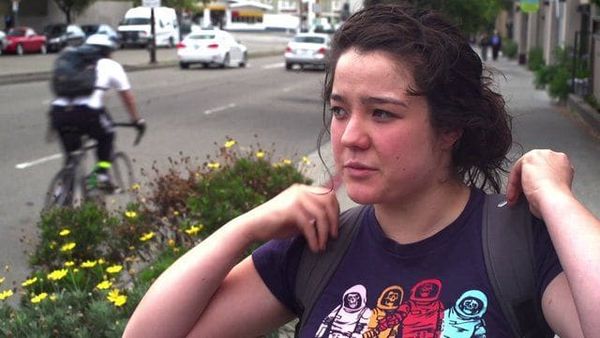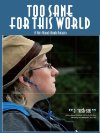Eye For Film >> Movies >> Too Sane For This World (2011) Film Review
Too Sane For This World
Reviewed by: Jennie Kermode

There was a time when stories about minority groups - especially those with psychological differences - were always told by other people, their subjects presented like lab specimens for the viewer to poke at. The last few years have seen a dawning awareness that this is both disrespectful and, too often, inadequate to grasp the reality of their experiences. People need to be able to tell their own stories. Made as a collaborative project between neurotypical filmmakers and people on the autistic spectrum, the film provides a platform for members of the latter group to discuss their lives in their own terms. It's the sort of thing that ought to be just common sense, but that, in light of the discrimination they face, is badly needed.
The image of autism has also undergone major changes in recent years. It used to be represented only through those most severely affected, who struggle to live any kind of independent life and who often face ongoing stress due to difficulties in communicating. With this, however, has come another problem - a popular inability or unwillingness to appreciate why 'high functioning' autistic people (often self-identified as Aspies, from Asperger's syndrome) can't just pull themselves together and cope with life like anyone else. Many do, of course, but as with depressed people facing similar pressures, what's elided is just how hard it is for them, how much energy it takes - energy that might be spent far more productively. There are people of many different ages in this film (also important, as autistic adults tend to be forgotten about whilst campaigns focus on how to help more telegenic children), and several of them were not diagnosed until adulthood. Several speak of the relief they felt upon getting that diagnosis - upon being reassured, after decades of struggle, that the problems they faced were not their fault.

In getting these important points across, the film benefits from a remarkably articulate set of interviewees, several of them high achievers by anyone's standards. Simply by being there they should go some way toward easing the fears of parents with kids on the spectrum. There are also interviewees who describe themselves as 'slow', however, and talk about the difficulties they had at school. Assured and assertive as they are (partly thanks to interview questions designed by other autistic people), they're a reassuring example for people with all kinds of different problems in childhood, and their inclusion highlights how rarely we hear any such voices. Between them, these diverse people do an effective job of putting across where the differences are that making fitting into mainstream society so difficult. Their different backgrounds keep their stories interesting and they quickly do away with the notion that autistic people have no sense of humour. This contributes to the film's other achievement - illustrating how much common ground there is and showing that mutual understanding, whilst it may pose challenges, is far from impossible.
Many autistic people will love this film simply for telling it how it is (albeit without much mention of those most severely affected) and because it offers so many intense moments of identification. Others will find that it offers revealing insights into something it's surprisingly hard to get useful information on. It may be simple in structure and fairly plain to look at, but it's an important piece of work quite capable to holding audience attention simply with what it has to say.
Reviewed on: 01 Apr 2014















